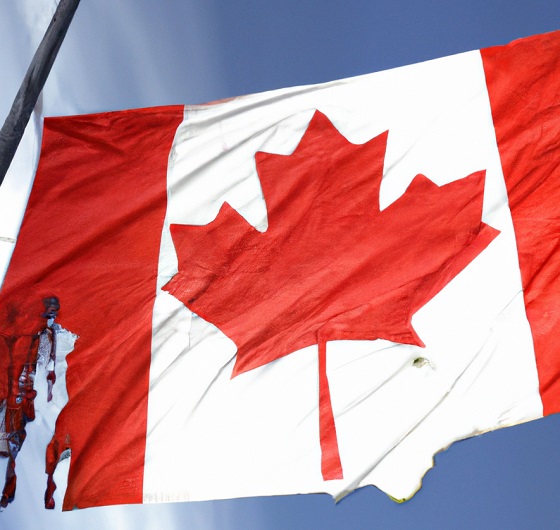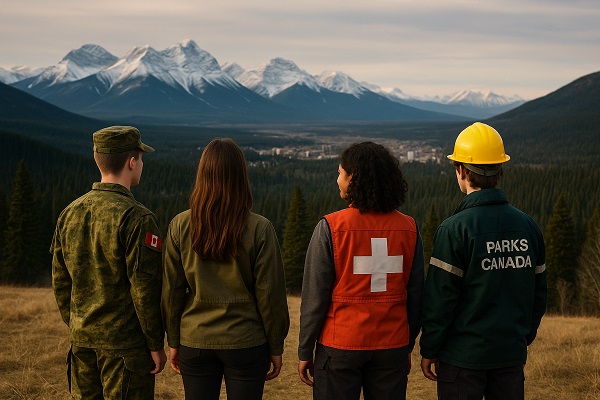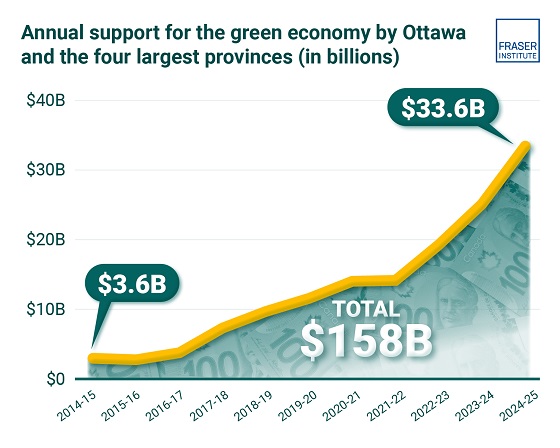Frontier Centre for Public Policy
The post-national cult of diversity promotes authoritarian intolerance

From the Frontier Center for Public Policy
“There is no core identity, no mainstream in Canada. … Those qualities are what make us the first post-national state.” — Justin Trudeau, 2015.
Throughout history, populations with sufficient historical, geographic, linguistic, economic, religious, and cultural attachments have flourished within the borders of unified nation-states.
Few modern nation-states fit a uniform definition. In countries such as Canada and the United States, two or more nations, regions, colonies, and tribes learned to prosper together within a negotiated constitutional order.
Not all nations insist on total sovereignty as a condition of their existence. Former Canadian Prime Minister Stephen Harper acknowledged this when he put forward a parliamentary motion recognizing that the Québécois form a historical “nation” within the united Dominion of Canada.
In 2006, Members of Parliament overwhelmingly supported Mr. Harper’s motion, but it was notable that Justin Trudeau, a rising star in the Liberal Party of Canada, regarded the recognition of a Quebec nation as an “old idea from the 19th century.” He said it was “based on a smallness of thought.”
For the cosmopolitan left, the period between November 2015 and November 2016 was a pivotal moment in history. A U.S. president who had rejected the idea of “American exceptionalism” and a Canadian Prime Minister who said his country had “no core identity” were in perfect accord with a growing cabal of international plutocrats who disapproved of nationalism and looked forward to the emergence of a borderless, new world order.
Globalists were convinced that a higher form of humanity could be achieved through a new trifecta of values known as “diversity, equity, and inclusion.” The only people standing in their way were pesky British Brexiters and Donald J. Trump.
Modern Origins of Anti-Nationalism
The post-modern left has always insisted that patriotism is a precursor to fascism. Since the late 1960s, Western intellectuals have deceptively linked nationalism and patriotism with the cultural values of Nazi Germany. For neo-Marxist intellectuals, affirming the merits of one’s nation is symptomatic of an authoritarian personality.
Following the fall of the Iron Curtain in the late 20th century, “global integration” became an increasingly popular vision among international policy experts. World Economic Forum patricians proposed a superior morality to be guided by a “Great Reset.”
The left insisted that problems such as climate change, inequality, racism, and poverty called for bold solutions. As a result, a “one-world government” paradigm came to occupy the center of academic thought. Universities in North America and Europe routinely advertised for positions in “global governance,” a term that few would have recognized a decade earlier.
The presumed genius of leaders such as Mr. Trudeau and President Obama promised to usher in a new era of diversity and inclusion that would make our world a kinder and gentler place.
The Old Diversity and the New
Over recent years, several scholars have adopted a more skeptical view of the post-national bromides being passed off as “diversity and inclusion.”
For example, University of Kent emeritus professor of sociology Frank Furedi argues that “diversity” is not “a value in and of itself.” He regards the present-day version of diversity as the foundation for a new form of authoritarianism.
In a January Substack article, Mr. Furedi pointed out that the meaning of diversity has been fundamentally altered.
This older form of diversity promised that the cultural freedom of local districts, tribes, races, religions, and immigrant communities could be respected within a justly established legal and constitutional order. It was a model that inspired the loyalty of citizens in modern nation-states such as the United States and Canada.
Post-national diversity means something entirely different. Mr. Furedi argues that “the current version of diversity is abstract and often administratively created. It is frequently imposed from above and affirmed through rules and procedure.”
He goes on to assert: “The artificial character of diversity is demonstrated by its reliance on legal and quasi-legal instruments. There is a veritable army of bureaucrats and inspectors who are assigned the role of enforcing diversity related rules. The unnatural and artificial character of diversity is illustrated by the fact that it must be taught.”
Dogmatic Diversity and the Decline of Freedom
Over the past 75 years, the left has promoted diversity as a remedy for discrimination. By the late 1960s, it had acquired a sacred importance. Mr. Furedi contends that “the main driver of this development was the politicisation of identity.”
He quotes the philosopher Christopher Lasch: “In practice, diversity turns out to legitimise a new dogmatism, in which rival minorities take shelter behind a set of beliefs impervious to rational discussion.”
Unfortunately, Mr. Furedi writes, “diversity has proved to be an enemy of tolerance.”
Radical proponents of diversity and inclusion reject debate and demand conformity. They have no qualms about limiting fundamental liberties, particularly free speech. The totalitarian temptations within this cult are akin to the impulses of an ancient creed or a communist dictatorship. No one is free to disagree, and there is little kindness in a dogma that has become the foundational value for 21st-century authoritarians.
Ten years ago, post-nationalist politicians such as President Obama and Mr. Trudeau found it easy to sell woke elites the same unfounded assumptions they had already acquired in university.
Today, free-thinking common folks are becoming considerably tired of serving the appetites of false prophets.
William Brooks is a Senior Fellow at Frontier Centre For Public Policy. This commentary was first published in The Epoch Times here.
Business
Ford’s Liquor War Trades Economic Freedom For Political Theatre

From the Frontier Centre for Public Policy
By Conrad Eder
Consumer choice, not government coercion, should shape the market. Doug Ford’s alcohol crackdown trades symbolic outrage for sound policy and Ontarians will pay the price
Ontario politicians have developed an insatiable appetite for prohibition. Having already imposed a sweeping ban on all American alcohol, Premier Doug Ford has now threatened to remove Crown Royal, Smirnoff and potentially other brands from LCBO shelves. Such authoritarian impulses reflect a disturbing shift in our political culture—one that undermines economic prosperity and individual liberty.
After Diageo, the multinational behind brands like Crown Royal and Smirnoff, announced in August that it would close its Amherstburg, Ont., bottling facility, affecting 200 workers, the political response was swift. NDP MPP Lisa Gretzky urged the government to retaliate by pulling Crown Royal from LCBO shelves. Days later, Ford dramatically dumped a bottle of the whisky during a press conference, signalling he might follow through.
Now, the premier has escalated the threat, vowing to remove Smirnoff and potentially other Diageo products.
These gestures may make headlines, but they come at a cost. They undermine business confidence, discourage investment, and send the wrong message to employers. More fundamentally, they reflect a poor understanding of how free societies settle disputes and make decisions.
To understand what’s at stake, it helps to consider the two basic mechanisms available to democratic societies: the marketplace and the ballot box. At the ballot box, citizens vote once, and majority rule determines a single outcome. The marketplace, by contrast, allows people to vote continuously with their dollars. Individuals make countless choices reflecting their own values and priorities. You get what you choose—without overriding anyone else’s preference.
There’s a role for government in correcting market failures, where there’s fraud, monopoly power or public risk. But banning legal products simply because of political displeasure with a company’s decision is not market correction. It’s coercion.
Diageo’s decision to close a facility may be unfortunate, but it doesn’t involve deception, unfair dominance, or harm to the public. Bans aren’t rooted in sound principle; they’re political, plain and simple.
Some argue the government is justified in acting to protect Ontario jobs. But that line of thinking is short-sighted. If job protection alone warranted banning products, we’d resist every innovation or trade deal that disrupted the status quo. Sustainable job growth depends on encouraging investment and innovation, not shielding every position from change.
The appropriate response to plant closures is policy reform, not retaliation. Ontario should focus on creating an environment where businesses want to invest and grow. That means fostering a stable, competitive business climate with clear rules, reasonable taxes, and efficient regulation. Threatening companies with bans only creates uncertainty and drives investment elsewhere.
With Ontarians spending $740 million annually on Diageo products, removing them from store shelves would impose real economic costs. Consumers would face fewer choices, weaker competition, and higher prices. Restaurants and retailers would be forced to adjust. The LCBO, Ontario’s government-run liquor retailer, would lose sales.
This isn’t hypothetical. The province’s ban on American alcohol is already projected to block nearly $1 billion in annual sales, while doing nothing to benefit Ontario consumers. The LCBO is serving political interests, not the public.
Supporters of such bans often reveal their lack of confidence in public opinion. Rather than persuade others to boycott a product voluntarily, they demand that government enforce a blanket restriction.
There’s a better way. Consumer-led boycotts offer accountability without coercion. They allow individuals to act on their beliefs without forcing others to comply. And they tend to be more effective, as companies respond faster to falling sales than to political theatrics.
But the issue at hand goes beyond liquor. It’s about whether elected officials should impose a single set of preferences on everyone, or whether citizens are trusted to decide for themselves.
Each new ban makes the next one easier to justify. Over time, these interventions accumulate and normalize government interference in private choice. Unlike consumer preferences, which can shift quickly and reverse, government prohibitions often persist. The LCBO’s century-old structure is evidence of how long some policies endure, even when they no longer serve the public interest.
This isn’t a call to eliminate government’s role. But it is a call for principled governance, the kind that distinguishes between legitimate oversight and overreach rooted in symbolism or political frustration.
Ontario’s government would do better to focus on long-term prosperity. That means building an economy where investors feel welcome, businesses can grow, and consumers are free to choose.
Ontarians are perfectly capable of making their own choices about which products to buy and which companies to support. They don’t need politicians like Ford making those decisions for them.
Conrad Eder is a policy analyst at the Frontier Centre for Public Policy.
Frontier Centre for Public Policy
Canada Needs a Mandatory National Service

From the Frontier Centre for Public Policy
Retired lieutenant-general and graduate of the Royal Military College of Canada, argues Canada should establish a mandatory national service for all citizens under 30 to rebuild patriotism, civic trust, and national readiness.
Our country can’t defend itself, and citizens aren’t patriotic enough to step up. It’s time to change that.
I joined the military at the age of 18, right out of high school. My parents were working class and couldn’t afford to pay my university tuition, so although I was accepted to several good schools, I chose the Royal Military College of Canada, where I’d be considered part of the military and receive an annual salary. During the academic year, our job was to study. Then in the summer, we did military training. We graduated as second lieutenants—entry-level officers—and then did four years of military service.
I loved RMC. That’s where I learned about discipline, leadership and teamwork. After graduating I served in an armoured regiment in Quebec City, the 12e Régiment blindé du Canada. Eventually, I became a three-star general—a senior commander—and represented Canada in NATO. The military is where I met my wife, who served as a major in the Royal Canadian Air Force. Our experiences gave us a sense of purpose that’s we’ve passed down in our family: today, two of my four kids serve in the Canadian military.
But they’re in the minority. On the whole, the Angus Reid Institute finds that young Canadians are more reluctant to fight for our country than older Canadians, and pride in our armed forces has dropped significantly, from 79 per cent in 2019 to 54 per cent now. That decrease is coupled with a lack of trust in our public institutions. As of 2023, only a third of Canadians were confident in the federal parliament, and barely half reported confidence in the justice system and courts. Some might argue that Canadians are taking more pride in our country now than ever—U.S. President Trump’s tariff threats brought us together and started the “Elbows Up” boycotts—but even that has started to ebb. In any case, we shouldn’t need Trump or any outside influence to make us patriotic. Real patriotism doesn’t come through ideas and slogans, but through leadership and action. That’s why I believe that now, more than ever, Canada needs to create a mandatory national service for all Canadians under 30 years old.
The Canadian Armed Forces are facing a shortage of between 14,000 and 16,000 personnel. Meanwhile, our Arctic coastline is poised to become a site of global geopolitical competition as world powers eye its critical minerals, oil, gas and fresh water. Russian and Chinese interests in the region are expanding, and the ice is melting, opening us up to a looming scramble for northern waterways and seabed resources. If anyone wanted to come into the North and seize our natural wealth right now, there would be little we could do to stop them, short of a strongly worded diplomatic protest. We don’t have the necessary troops to defend ourselves—and the ones we do, we can barely transport up there.
Meanwhile, our country’s political, economic, and military weight has atrophied, and Canada’s international reputation is getting weaker. We’re no longer a strong player on the world stage. For example, in August, when a group of European leaders travelled to Washington, D.C. to discuss the war in Ukraine and support President Zelenskyy, Canada was not at the table—even though we are only a short flight away. We need to rebuild Canadians’ confidence before we can once again wield the weight of a strong middle power abroad. And we can do that by ensuring that Canadians love their country and are prepared to serve it.
The good news is that recent polls show strong interest in a mandatory national service program—especially if it’s broadened beyond the military. In an Angus Reid survey, 43 per cent of people supported the idea of mandatory military service, but about 70 per cent of people approved of a year-long mandatory service in the fields of public health support, environmental support, youth services and civil protection.
There’s much that young people can gain from serving their country. Early in my military career, I spent two years on exchange in France, where I commanded army conscripts. It was the late 1970s, and at the time, almost every 18-year-old male was required to serve in the French military. We received new appelés, or conscripts, right off the bus. They had long hair and lacked any prior military training or knowledge. But after 12 months of basic training, I could have taken my troop to war and won. Some of them, who had shown leadership potential, ended up becoming crew commanders in charge of an armoured vehicle.
These conscripts gained more than just the skills to shoot a rifle or drive a tank; they learned about their country and the importance of defending and serving it. Having a job to do gave them discipline, and they picked up small lessons like the importance of nutrition and staying fit. These basic but foundational habits can help set a person up for life-long health and success.
In France, a lot of the appelés hadn’t travelled much. Once they joined the military, they performed military manoeuvres across the country. When young people get to know their country and its people better, a sense of national pride emerges, along with an understanding of why their country is worth defending in the first place. In Canada, national service could have a similar effect. Imagine a young man or woman from Quebec is sent to serve in Alberta, or vice versa. How much could they learn from that experience?
Several NATO nations already have a mandatory national service system in place, including Lithuania, Estonia, Norway, Finland and Denmark. Lithuania’s system, which seeks volunteers and then uses a lottery to fill the remaining quota, is only for the military and applies to men ages 19 to 26. Estonia conscripts all men between 17 and 27, but other public service jobs are options for those with religious or moral reservations. Meanwhile, Norway’s highly selective conscription program selects several thousand of the most eligible men and women up to the age of 44, granting the nation 3.5 times more military personnel per capita than Canada.
If we’re going to have a national service program, we’ll need leaders in government to create a framework for it. In Canada, the federal government could designate several different streams of work, including defence, conservation, emergency and disaster response, health care, social services, digital infrastructure and youth development. When a young person turns 18, they would register for national service and suggest what stream they might prefer. If more people register than needed, a lottery system could determine who serves and in which stream. Those selected would enter training and take courses on civics and Canadian history, as well as stream-specific skills. They would then be deployed to a community, where they would serve for a year. Deferral beyond age 18 could be an option in some cases, as long as young people still entered service before a certain age, like 25 or 30.
Getting a system like this off the ground would require resources, training capacity and federal coordination, but it would be a worthwhile effort. Canada is faces severe wildfire seasons, an expanding cybercrime landscape and declining biodiversity. Our health-care system is anticipating a shortage of 117,600 nurses by 2030. Young people would emerge from service with a stronger sense of responsibility for their nation and the foundational skills necessary to help address the country’s biggest problems. And of course, those who choose to serve in the military could be added to the reserve, which would place Canada in a stronger position to defend itself in an increasingly aggressive world.
I envision national service as a paying job, which would make it more attractive to young people. And there could be other incentives for them to join—financial support for university, for instance, or guaranteed employment after service. Permanent residents could get a faster path to citizenship.
Citizenship in this incredible country comes with benefits, but also responsibilities. Once every young Canadian has worn a maple leaf on their shoulder, I think they’ll feel pride for their country—something that can unite us all and help Canada achieve its fullest potential.
Michel Maisonneuve is a retired lieutenant-general who served Canada for 45 years. He is a senior fellow at the Frontier Centre for Public Policy and author of In Defence of Canada: Reflections of a Patriot.
-

 Business2 days ago
Business2 days agoTrans Mountain executive says it’s time to fix the system, expand access, and think like a nation builder
-

 Economy2 days ago
Economy2 days agoStunning Climate Change pivot from Bill Gates. Poverty and disease should be top concern.
-

 Addictions2 days ago
Addictions2 days agoThe Shaky Science Behind Harm Reduction and Pediatric Gender Medicine
-

 International2 days ago
International2 days agoBiden’s Autopen Orders declared “null and void”
-

 Business2 days ago
Business2 days agoClean energy transition price tag over $150 billion and climbing, with very little to show for it
-

 Internet23 hours ago
Internet23 hours agoMusk launches Grokipedia to break Wikipedia’s information monopoly
-

 Business2 days ago
Business2 days agoFlying saucers, crystal paperweights and branded apples: inside the feds’ promotional merch splurge
-

 Business17 hours ago
Business17 hours agoCanada heading into economic turbulence: The USMCA is finished and Canadian elbows may have started the real fight







